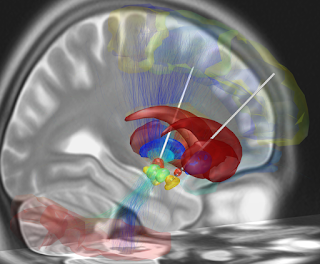AlphaGo and Google DeepMind: (Un)Settling the Score between Human and Artificial Intelligence

By Katie L. Strong, PhD In a quiet room in a London office building, artificial intelligence history was made last October as reigning European Champion Fan Hui played Go , a strategy-based game he had played countless times before. This particular match was different from the others though – not only was Fan Hui losing, but he was losing against a machine. The machine was a novel artificial intelligence system named AlphaGo developed by Google DeepMind . DeepMind, which was acquired by Google in 2014 for an alleged $617 million (their largest European acquisition to date), is a company focused on developing machines that are capable of learning new tasks for themselves. DeepMind is more interested in artificial “general” intelligence, or AI machines that are adaptive to the task at hand and can accomplish new goals with little or no preprogramming. DeepMind programs essentially have a kind of short-term working memory that allows them to manipulate and adapt information to make d



